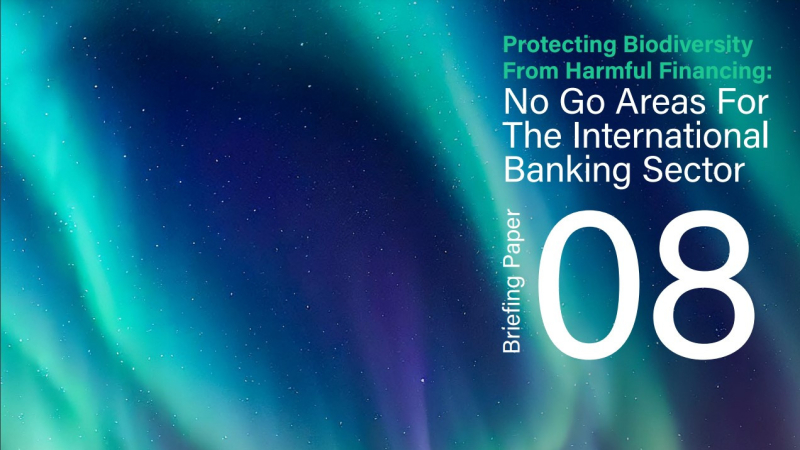On Indigenous Peoples Day, new briefing paper series highlights role of banking sector on biodiversity

In recognition of World’s Indigenous Peoples Day, Friends of the Earth US and partners have published the final three briefing papers in a series called "Protecting Biodiversity from Harmful Financing". The briefing papers cover the following topics:
- Protected or at-risk marine and coastland ecosystems are considered No Go Area 6, which is Paper 06 of the series. This paper is co-published with Deep Sea Mining Campaign.
- Areas where Free, Prior and Informed Consent has not been obtained by Indigenous Peoples and local communities are considered as No Go Area 7, which is Paper 07 of the series. This paper is co-published with Instituto Maíra and Cultural Survival.
- Iconic, transboundary ecosystems are considered as No Go Area 8, which is Paper 08 of the series.
The series underscores why banks and financiers should exclude harmful, unsustainable financing to activities and projects which impact critical, at-risk ecosystems. In calling on banks and investors to protect these areas, this work aims to strengthen financiers’ biodiversity policies and practices and hold them accountable to their negative biodiversity impacts. Each briefing paper is dedicated to a key area as identified by the Banks and Biodiversity Initiative’s eight proposed No Go Areas.
Previous briefing papers in the series focus on why banks should protect the following as No Go areas: internationally recognized areas, nationally recognized areas, Key Biodiversity Areas and habitats with endangered and endemic species, primary and vulnerable secondary forests, and free flowing rivers.
Friends of the Earth US is part of the Banks and Biodiversity Initiative, a civil society coalition which advocates that banks and financiers strengthen their biodiversity policies and practices in order to halt and reverse biodiversity loss. Learn more at banksandbiodiversity.org.
